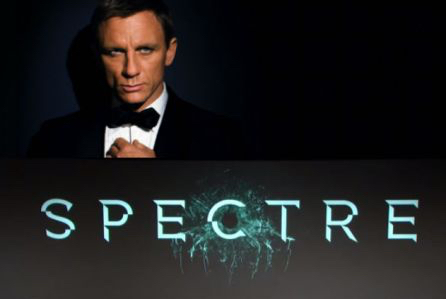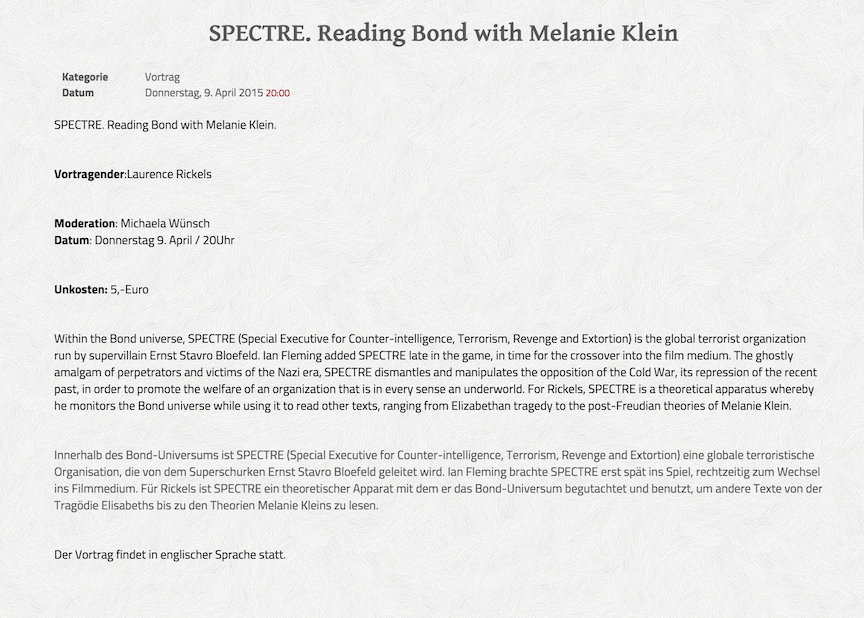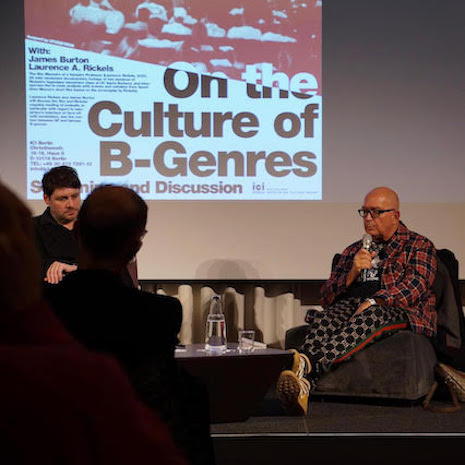
Photo by Claudia Peppel
Vampire as Model: On the Culture of B Genres
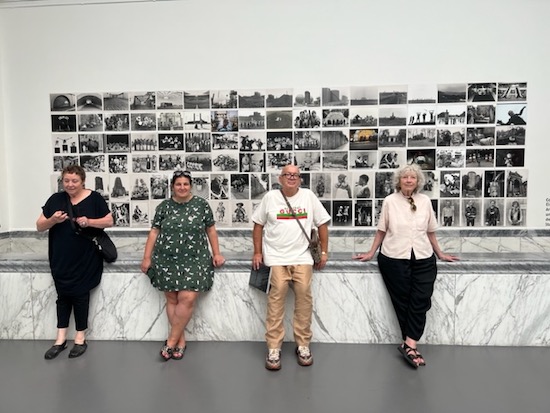
With Monika Edelmaier, the curator, Frau Ilk, and Ulrike Ottinger at "Cosmos Ottinger," an exhibtion at the Staatliche Kunsthalle Baden-Baden (June 2022)

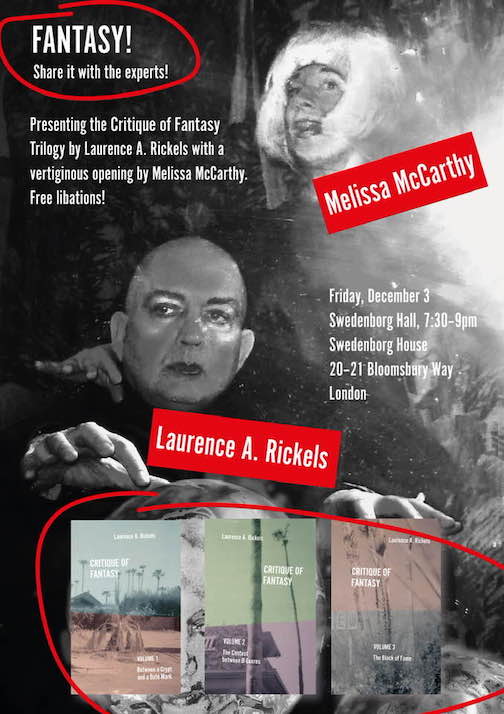
Fantasy! Presenting the Critique of Fantasy Trilogy wih Melissa McCarthy
December 3, 2021, Swedenbog House, London UK
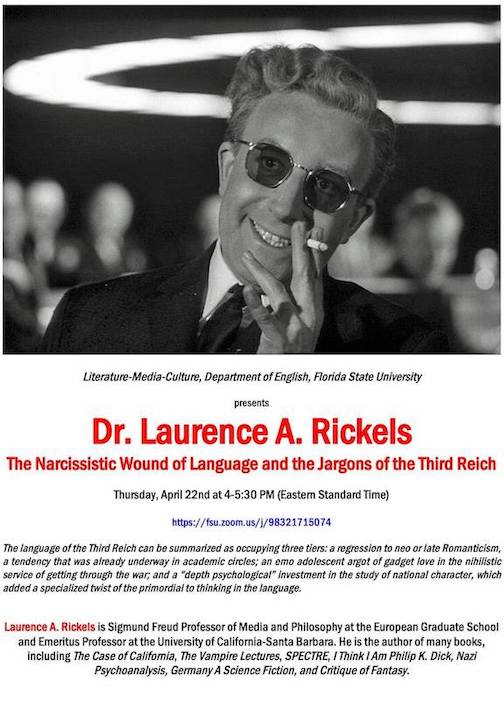
Literature-Media-Culture, Department of English, Florida State University
"The Narcissistic Wound of Language and the Jargons of the Third Reich"
April 22, 2021
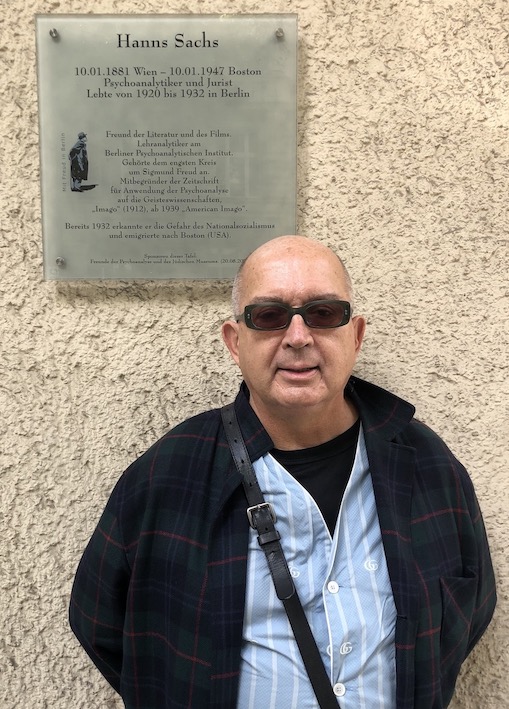
What a find! The address in Berlin where Hanns Sachs resided for ten years. To my mind he was the most accomplished of the early Freudian cultural critics. The essay "Delay of the Machine Age" turned the Daniel Paul Schreber case into a quarry for the study of occult and technical media. And by reading the psychic ready positioning for "technology" independently of any machine history, it offered a stay against the dismissal, spearheaded by Heidegger, of Freud's genealogy of media. In that heightened sense of belonging that lies beyond influence it is "the same" work as Benjamin's "Some Motifs in Baudelaire."

The home of the last emperor's mother outside Frankfurt. Alfred Adler applied his organ
inferiority thesis to the emperor's withered arm and saw WWI as its aftermath. Freud
pointed out that it was rather the mother's horror over her wounded narcissism in the
body of her son that caused problems. Wilhelm kept mother in this fruit cellar projected
large. Today the setting of choice for countless weddings: bride and groom make their
bet and so must lie in it. Shades of von Trier's Melancholia.
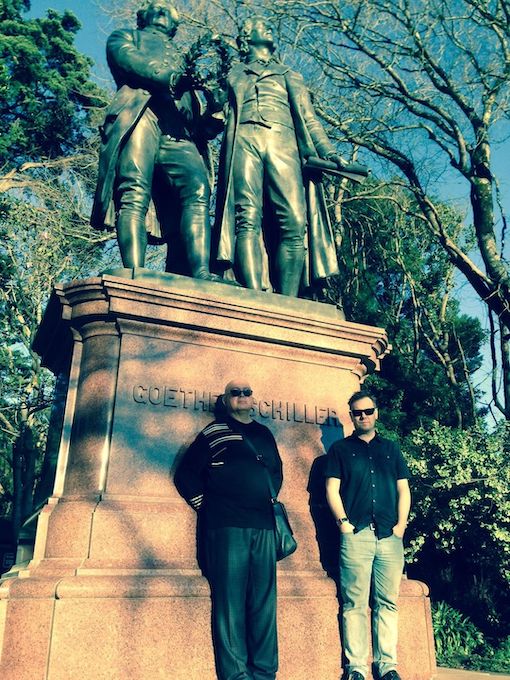
Rickels & Reich / Goethe & Schiller in San Francisco, California

The plaque commemorates Napoleon's 7-day stay in the Paradise Palace in Valletta, Malta.
Napoleon freed the slaves, enfranchised the Jews, abolished the Inquisition, and, in short,
introduced secular law.

Goethe in Carlsbad: the insignia of his PG-rated spa sojourn, before sublimation lost the speed race against repression in the other BAD.

Freud was a regular visitor to Marienbad, beginning in the WWI summer of 1915. His last summer
in Marienbad was in 1936 to attend the psychoanalytic conference that saw Lacan perform his mirror
trick. I don't think Freud took note and so he was spared the pain of knowing which of the post-1933 <
events would cut deepest.

The morning after my lecture at the university in Erfurt. Standing below the statue of Bismarck marking
the site of his stay there in 1850. 2017
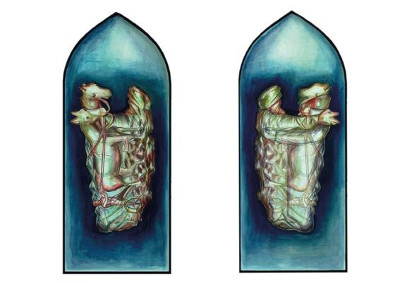
Margarete Hahner, blood bottom love
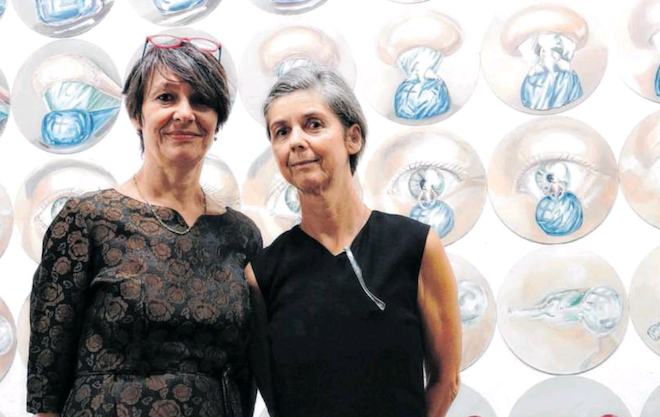
With Caro Suerkemper at the Kunstverein Schwäbisch Hall. On September 14 I introduced her collaborative exhibition with Margarete Hahner.
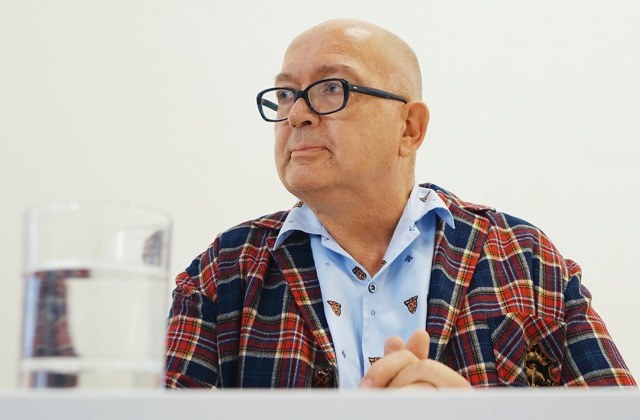
"Daydream Believers" Introduction
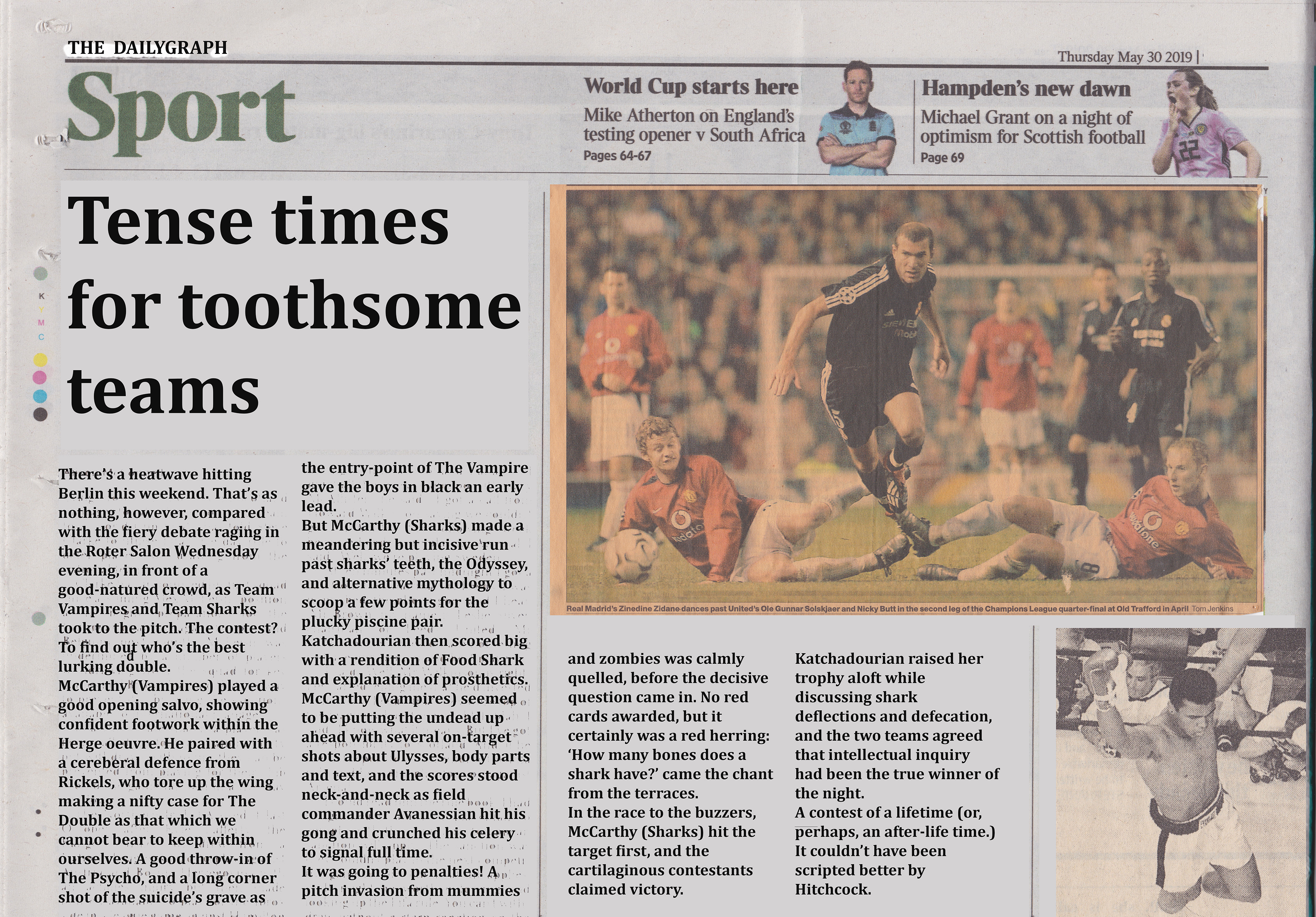
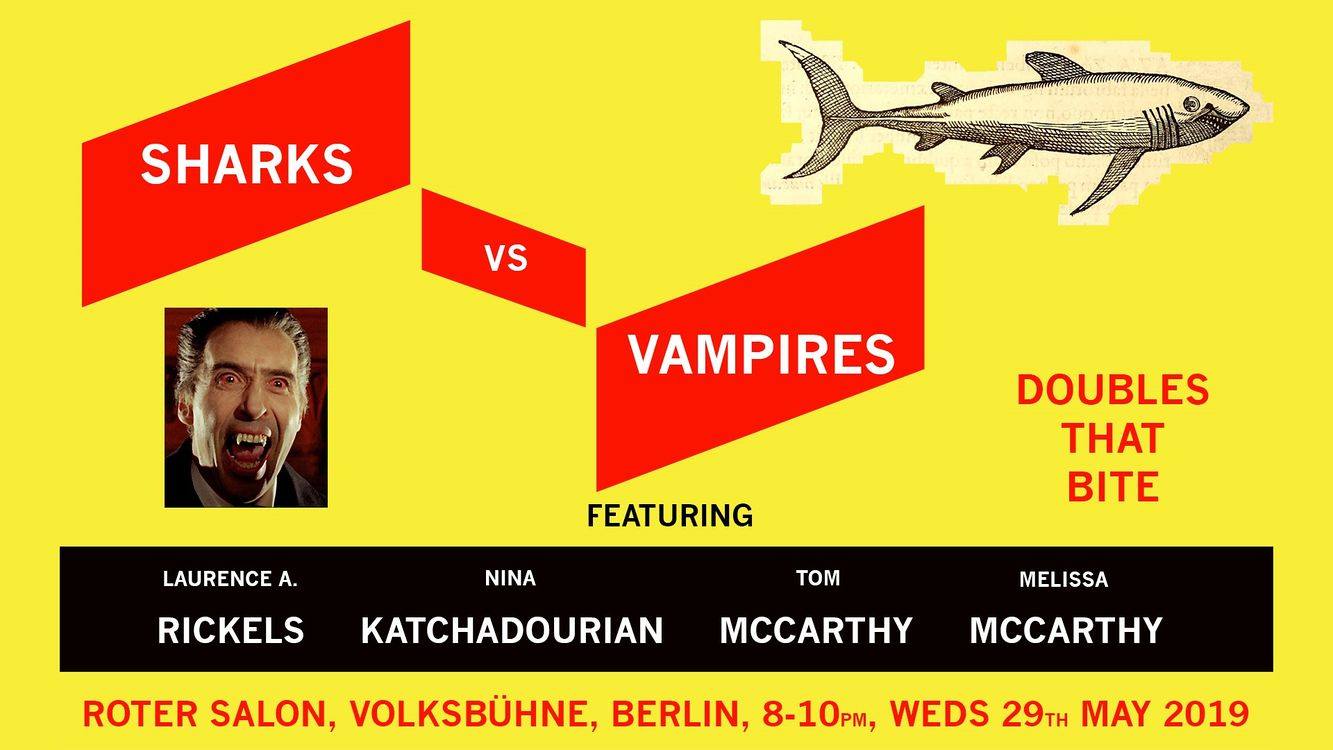
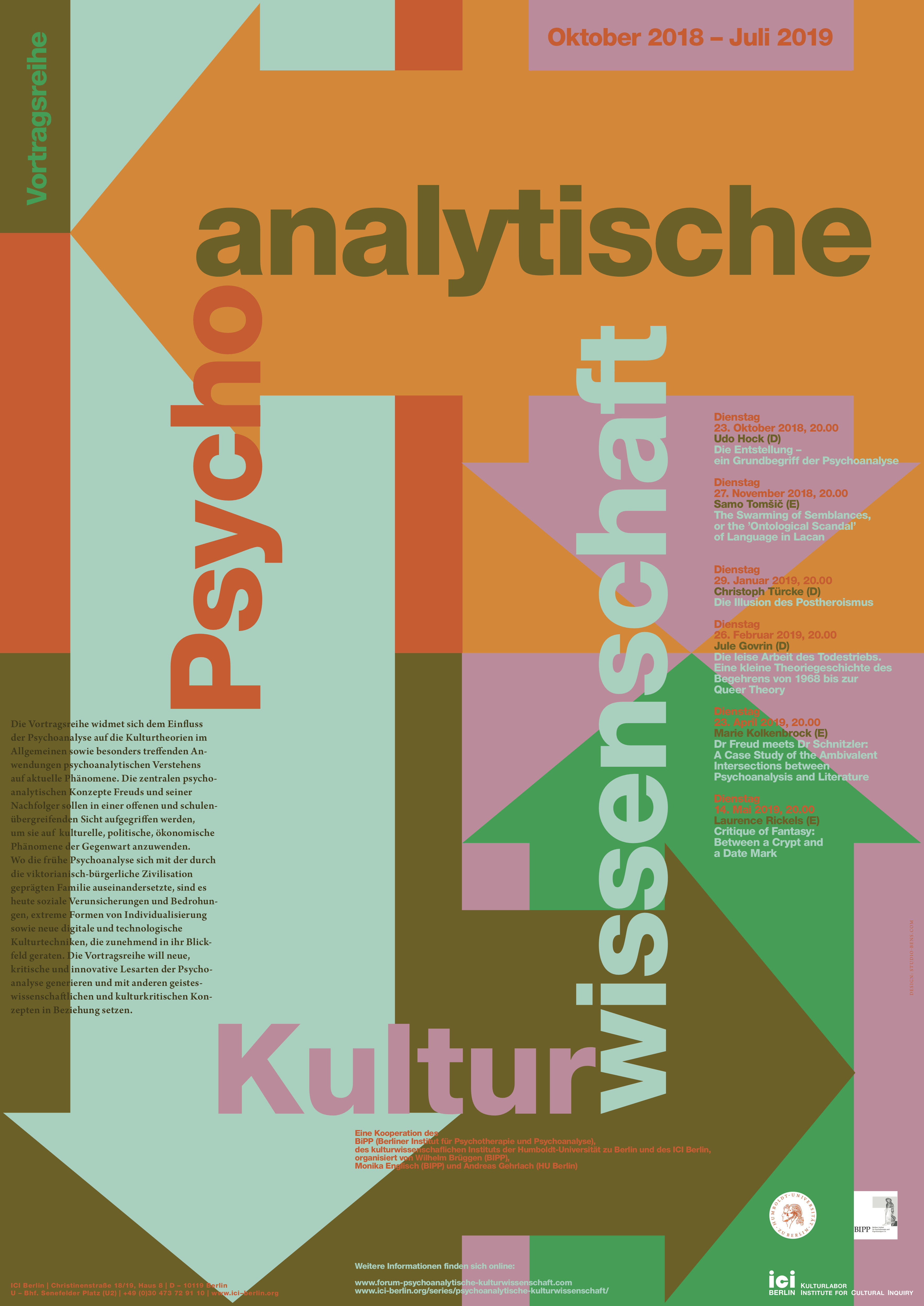
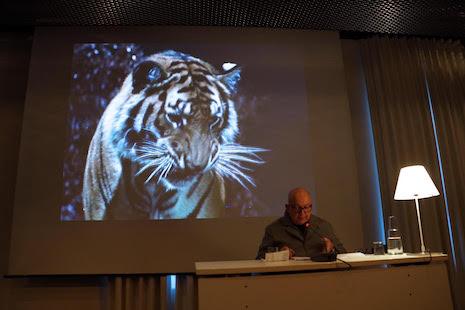
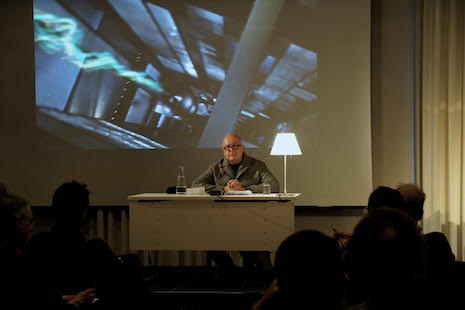
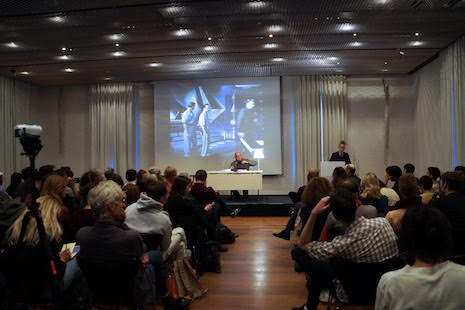
Image credit: Claudia Peppel
Laurence A. Rickels Critique of Fantasy: Between a Crypt and a Date Mark, 14 May 2019, ICI Berlin
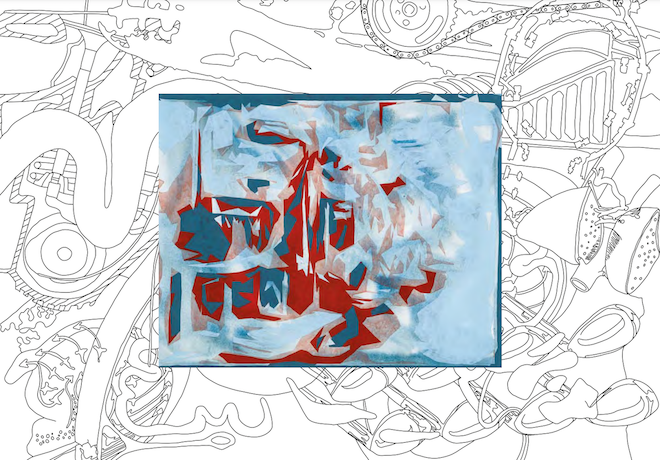
FRANCIS RUYTER Hurricane / Time / Image curated by Mohammad Salemy. FRANZ JOSEFS KAI 3 11 April - 9 May 2019, Opening 10 April at 17.30h with a discussion featuring Ibai Gorriti, Laurence Rickels, and Maryna Makarenko followed by curator tour.
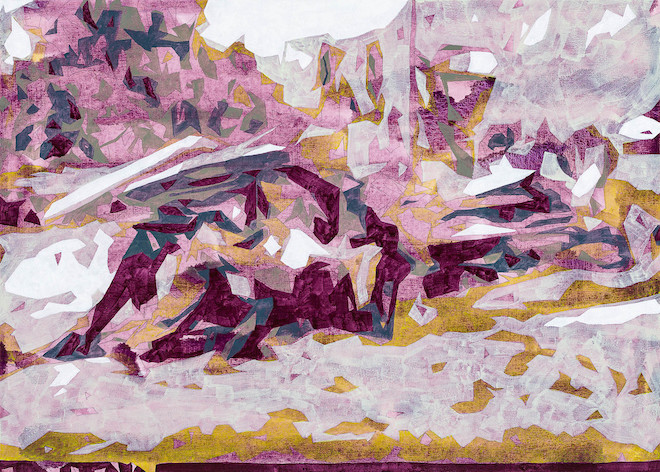
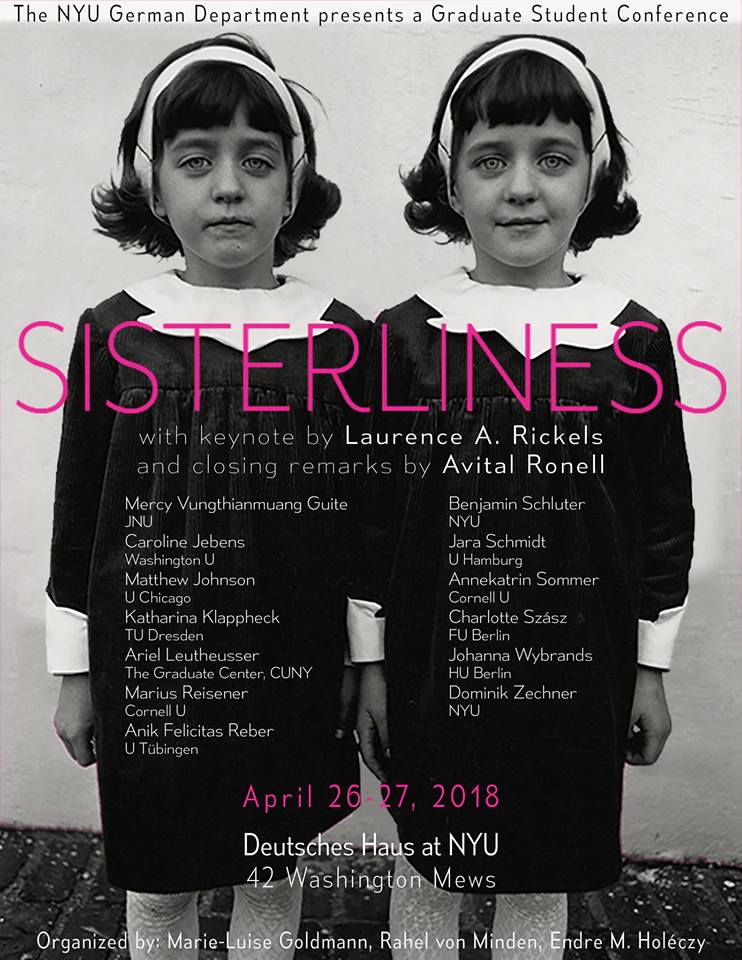
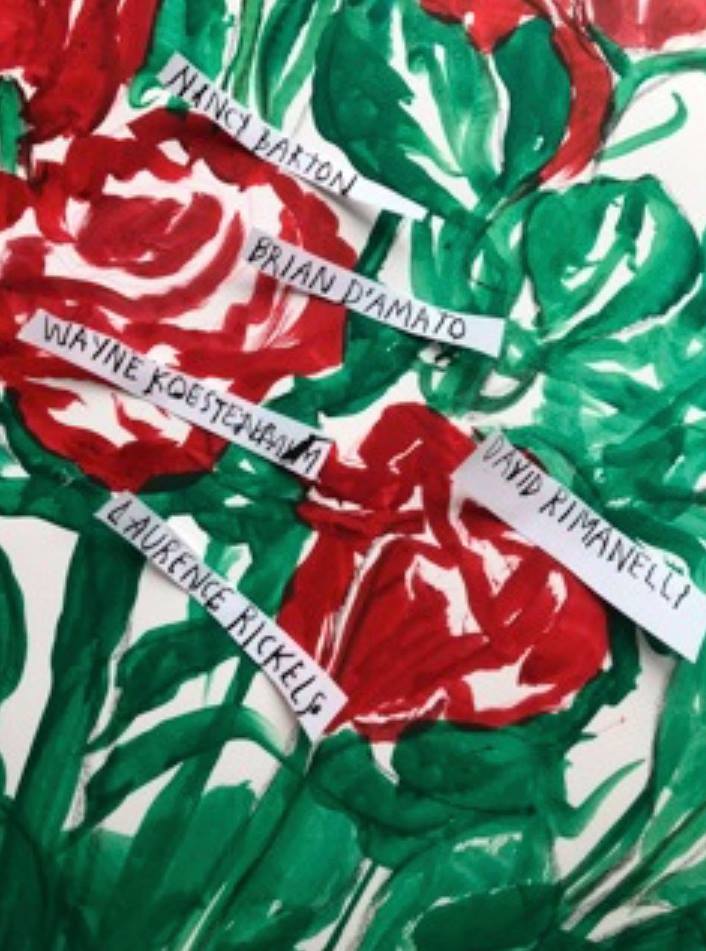

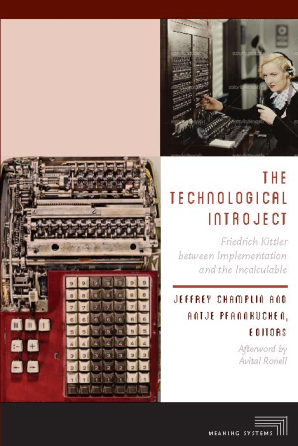
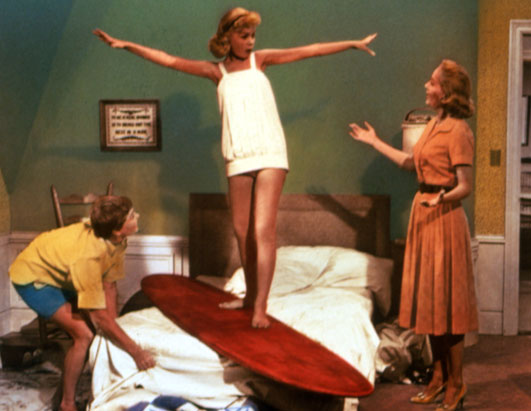
Laurence A. Rickels
California Susan
https://www.diaphanes.de/titel/california-susan-5264
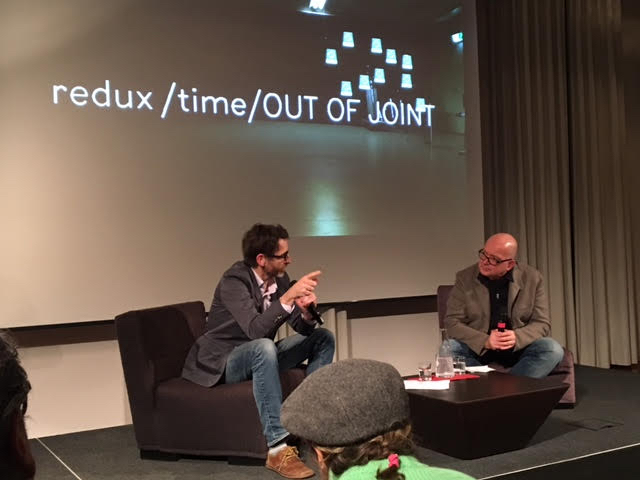
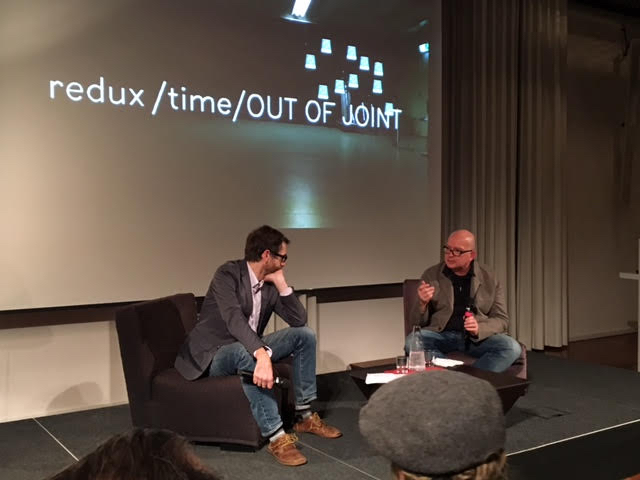




«GEISTER WERDEN TEIL DER ZUKUNFT SEIN»
Zum Verhältnis von Psychoanalyse und Medientheorie
https://www.degruyter.com/downloadpdf/j/zfmw.2017.9.issue-2/zfmw-2017-0212/zfmw-2017-0212.pdf
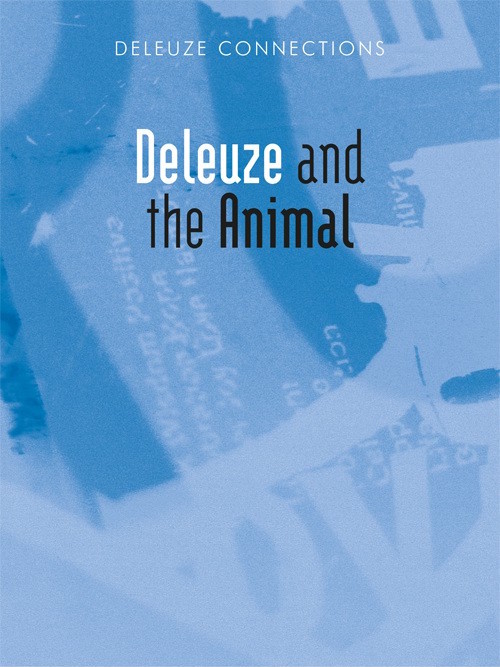
The Unmournable Animal Death, Laurence Rickels
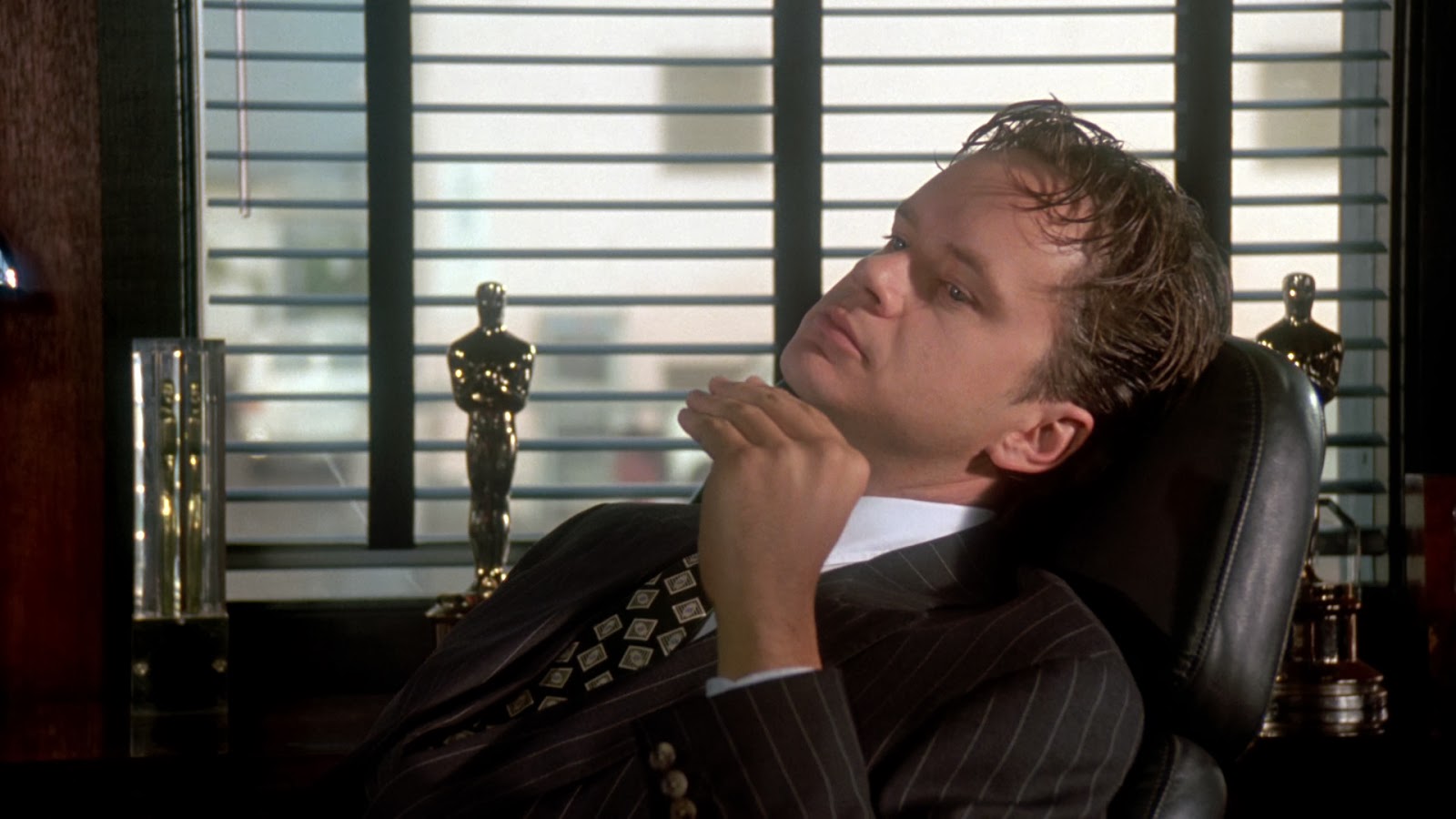
Laurence A. Rickels
Wish upon A Star
Laurence A. Rickels: Der Vampir als Metapher. Ein "blutiges" Portrait der Nachkriegswelt Deutschlands. Der Autor rekonstruiert die Wiederbelebung des Vampirmythos in Film und Literatur als verschlüsselte Integrationsgeschichte (Nachkriegs-) Deutschlands.
Im Wechsel von Science-Fiction-Lektüren und Fallstudien zur modernen Kunst gehen diese Essays den Spuren der Trauer nach und stellen die Frage nach der „Wiedergutmachung“ im doppelten Sinn: psychoanalytischer Begriff und als Slogan deutscher Nachkriegspolitik.
Laurence A. Rickels lehrte Sprachwissenschaften und Psychoanalyse an der University of California und Kunsttheorie an der Staatlichen Akademie der Bildenden Künste Karlsruhe. Als Sigmund Freud Professor unterrichtet er derzeit Medienphilosophie an der European Graduate School.
24.03.2017
von 18:30 bis 20:00
Karl-Tauchnitz-Straße 1, 04107 Leipzig
Veranstalter: Passagen Verlag
Laurence A. Rickels goes to California (2017)
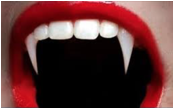
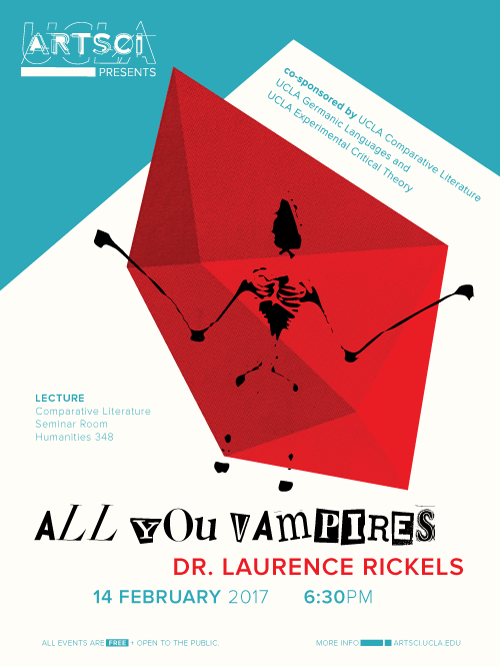
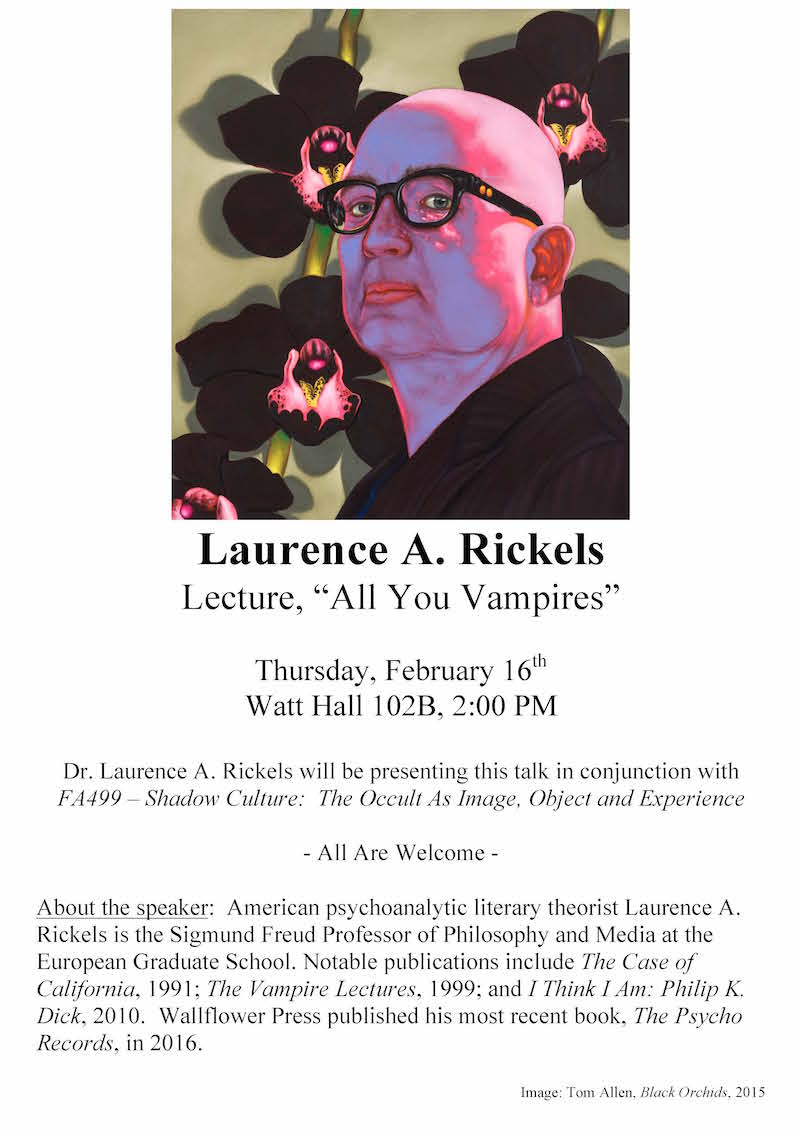

“LEITMOTIF SIEGFRIED”
BOOK PRESENTATION (An Afternoon of Pre-All Hallows Eve Mischief)
Reading, discussing, signing, buying The Psycho Records
Sunday, October 30
5:00 PM, City Lights Bookstore, 261 Columbus Ave., San Francisco
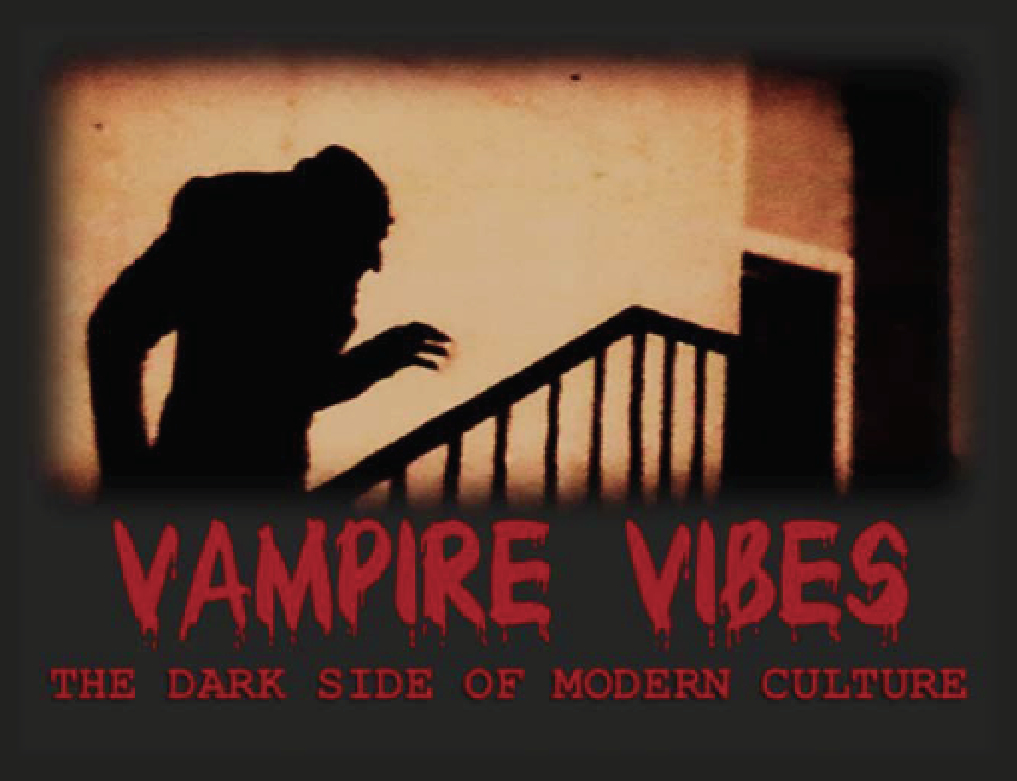
Vampire Vibes
The Dark Side of Modern Culture
Friday, March 25, 12:00-6:00pm
Plimpton Room, Barker Center 133, Harvard University
«Wer ist die Mutter, Bond oder die Gespielin?»
Der Psychoanalytiker Laurence A. Rickels hat ein Buch über James Bond geschrieben. Er sieht in ihm eine Maschine, die fähig wird, die Wunden seiner Geschichte in sich aufzunehmen.
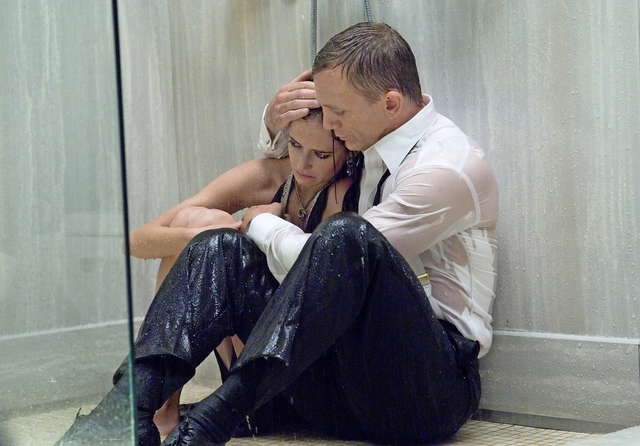
Anfang November startet der nächste James-Bond-Film, er wird sicher wieder eine eher ernste Sache. War das früher nicht anders, etwa bezüglich der Bösewichter? Der Autor Ian Fleming hat Bonds Gegner zurückhaltender gezeichnet, als sie in den Filmen dargestellt werden. Dort bekommen sie Züge von affektiertem Camp, vor allem in den Filmen mit Roger Moore. Sie haben aber sicher etwas Theatralisches. Fleming hat den berühmten Schurken Blofeld als einen beschrieben, der gerade von der Bühne einer Shakespeare-Inszenierung runtergestiegen ist..
HKW 100 Years of Now
Wed, September 30, 2015
Dreaming Collective
With Jennifer Gabrys, Erich Hörl, Clapperton Mavhunga C. and Laurence A. Rickels
Walter Benjamin spoke of the “dreaming collective” of bourgeois culture that knows no history, surrendering itself to the madness of the commodity world. In the history of modernity, projected collective dreams are inseparable from the history of political terror. On spiritual ordeals, media phantasms and forms of exclusion.
The projected dreams of collectives cannot be separated from the history of political terror in modernity. That lived forms of collectivity themselves are similar to a dream state was suggested by Walter Benjamin with Paris’ arcades in mind. He spoke of the “dreaming collective” of bourgeois culture that gives in to the phantasmagoria of commodities. How can the “dreaming collective” be conceived as a category to critically and temporally diagnose this century and its epochal dreams? How does the collective dream in a state of mass psychosis, and also under the conditions of algorithmic environments and social networks? The term is here applied to various faces of mass society, as well as a concept that diagnoses an unconscious, ahistorical form of the present: “The dreaming collective knows no history. Events pass before it as always identical and always new. The sensation of the newest and most modern is, in fact, just as much a dream formation of events as the eternal return of the same.” (Walter Benjamin, The Arcades Project)
Erich Hörl & Laurence A. Rickels
With reference to Daniel Paul Schreber’s “Memoirs of My Nervous Illness,” Rickels and Hörl will talk about media technological phantasms, epochal reveries, and the testing of souls.
Jennifer Gabrys & Clapperton Mavhunga C.
How did the last century produce both new forms of difference, subordination, and exclusion even as it generated new forms of global collectives? Which concepts and ideas lay behind notions of global technology or environment? Mavhunga and Gabrys explore how the last century of economic, technological, and environmental globalization has also produced a range of different identities, dreams, and power structures for diverse communities.
Thu, 01 October 2015
The coming war
With Laurence A. Rickels and Michel Feher
Can the present be conceived of as a pre-war period? Or has the “next war” already begun? What must the European understanding of history clear away in order to look the present squarely in the face? Where are the new imperial rivalries and collective projections heading?
Leitmotif Siegfried
From Goethe’s Werther and Wagner’s Siegfried to the Californian counterculture of the 1960s: Was adolescence a German invention? On the draft, the mainstream, and superegos.
Laurence A. Rickels, psychoanalyst, author, Karlsruhe, Saas-Fee
Disposing of the discredited: A European Project
Michel Feher, philosopher, publisher, London, New York
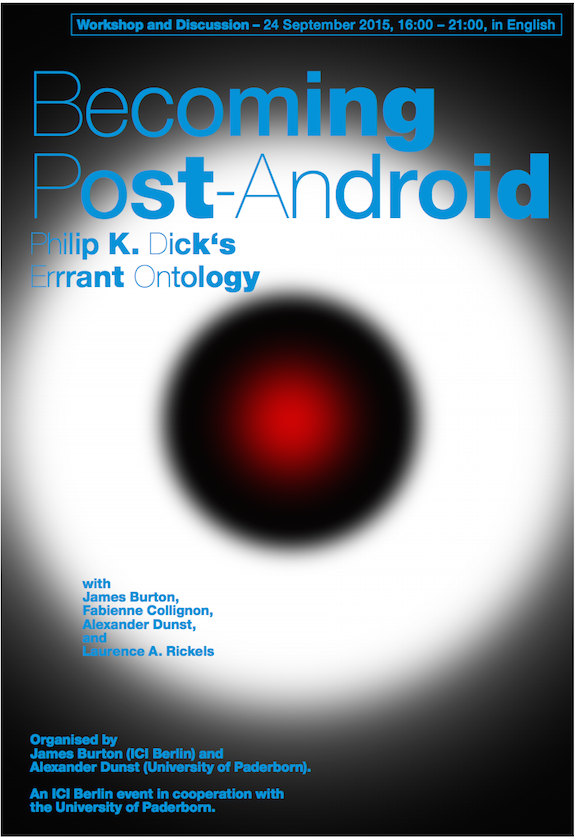
Becoming Post Android
Philip K. Dick's Errrant Ontology
with James Burton, Fabienne Collignon, Alexander Dunst, and Laurence A. Rickels
September 2015, 16:00 – 21:00, in English
Organised by James Burton (ICI Berlin) and Alexander Dunst (University of Paderborn).
An ICI Berlin event in cooperation with the University of Paderborn.
ICI Kulturlabor Berlin
ICI Berlin Institute for Cultural Inquiry
Christinenstr. 18/19, Haus 8
D- 10119 Berlin

The Book of Abstracts 6th International May Conference Current Issues in English Studies 14-15 May 2015 6 th International May Conference on English Studies Krakow, 14-15 May, 2015 organized by Uniwersytet Pedagogiczny im. Komisji Edukacji Narodowej w Krakowie held under the distinguished patronage of The Rector of Pedagogical University of Cracow, Prof. dr hab. Michał Śliwa
March 19-21, 2015 in Göttingen Laurence Rickels will deliver one of the keynotes: "The Ghost is Clear." Conference title: "Literature and Media Theory: Mediality -- Materiality -- Cultural Techniques."
March 12, 2015 Veranstaltungen mit LAURENCE A. RICKELS
16:00 Uhr Die gespenstische Unterwelt der Literatur. Ein psychoanalytischer Blick auf die deutsche Literaturgeschichte. Präsentation und Gespräch mit Peter Engelmann im Literaturforum Halle 5: Stand F600
19:00 Uhr Der Vampir: Auf den Spuren eines geheimnisvollen Grenzgängers. Präsentation und Filmvorführung.
Ort: backyARTS
February 28, 2015 ZKM Karlsruhe
(Baden-Württemberg Filmpremiere)
Samstag, 28.02.2015
17 Uhr
Einführung: Dr. Andreas Beitin / Prof. Peter Weibel
Kurzvortrag: MAKING A WISH Prof. Dr. Laurence A. Rickels (Kunstakademie Karlsruhe)
Screening und anschließendes Panel mit Robert Bramkamp, Laurence A. Rickels, Susanne Weirich, N.N.
Adresse: HfG Kubus, Lorenzstraße, 76135 Karlsruhe
http://zkm.de/event/2015/02/neue-natur-art-girls-intern
Eintritt frei

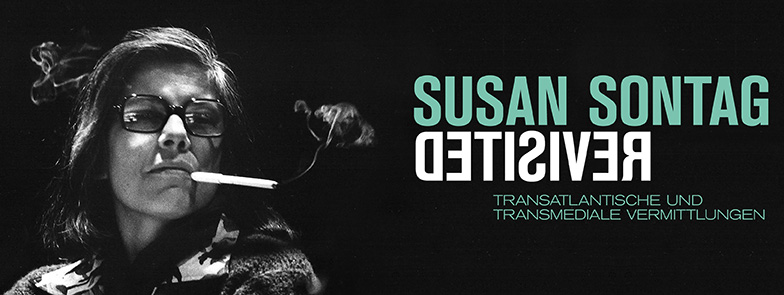
SUSAN SONTAG REVISITED im Januar 2015 Susan Sontag gehörte zu den großen intellektuellen Persönlichkeiten des 20. Jahrhunderts. Ihre Essays zu Fotografie und Kriegsberichterstattung, Krebs und AIDS sind legendär. Dass sie nicht nur in Filmen von Woody Allen und Andy Warhol auftrat, sondern auch selbst ein halbes Dutzend Filme.

Radikales Denken. Zur Aktualität Susan Sontags. The Münchner Kammerspiele.
Mit: Michaela Melián, Michael Krüger, Nicola Behrmann, Tanja Zimmermann, Rembert Hüser, Daniel Schreiber, Stefan Hunstein, Carolin Emcke, Juliane Rebentisch, Philipp Ekardt, Thomas Meinecke, Almut Bruckstein, Elisabeth Bronfen, Ina Hartwig, Eckhard Schumacher, Eva Meyer, u.a.
Laurence Rickels: California Susan.
Susan Sontag (1933-2004), Essayistin und Romanautorin, Filmemacherin und Theaterregisseurin, öffentliche Intellektuelle und Medienikone, war eine radikale Denkerin.
Susan Sontags zehnter Todestag ist Anlass, ihr ein interdisziplinäres und intermediales Symposium zu widmen und nach der Aktualität ihres Denkens für die Gegenwart zu fragen. Es bringt Künstler, Wissenschaftler, Kulturschaffende und Weggefährten Sontags zusammen, die sich in Lesungen, Performances, Podiumsdiskussionen und Vorträgen mit ihrem Werk auseinandersetzen.
Review von Die Welt. "Surfen bringt den Geist in Form"
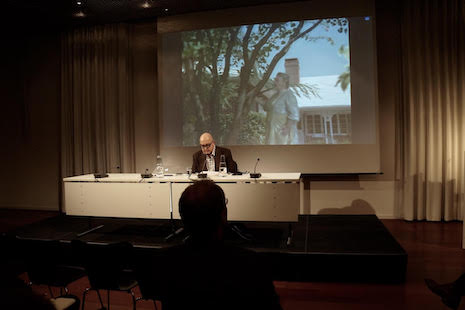
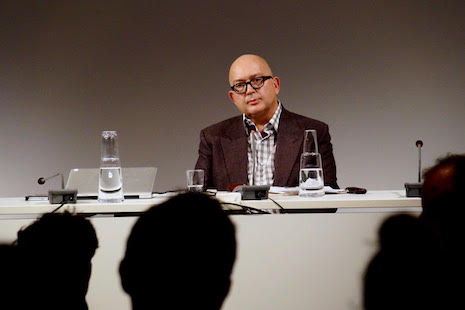
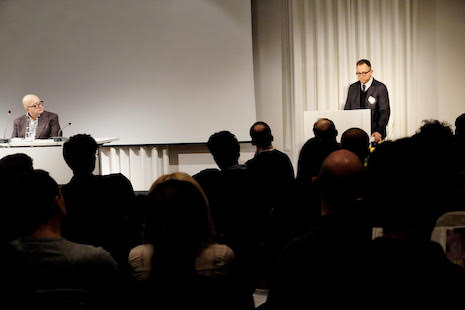
Images by Dr. Claudia Peppel
Abandon
World Picture Conference
ICI Berlin
Nov 7-8, 2014
Keynote lecture:
Prof. Laurence Rickels; Chow Down Freud’s Primal Fantasy and the Lost Loss.
The term abandon encompasses radical renunciation and immersive indulgence in its oscillation between abandonment of and abandonment to, between restraint and luxury, mindfulness and neglect. When we speak of abandonment we indicate a situation in which we take leave of something, or disband a collective entity, or else act in a way that suggests a disaggregation of certain protocols of behaviour, or belonging (as when we “laugh with abandon”). Discourses and scenes of media and politics are generally highly invested in ideas of taking-leave, breaking apart or away, acting with abandon. In the present moment, we believe the term resonates in manifold ways. For instance: with often painful choices between theoretical and political models that have outlasted their effectiveness but to which there seem to be no alternatives; with turns to abandoned objects as new sources of ontologies in which the turn itself is a mode of abandoning an established political-theoretical project; with the obdurate “problem” of pleasure in aesthetics and aesthetic theory as either the obstacle or the medium of the aesthetic’s interface with the political; with the cathexis of the body and its phenomenology as an instrument and medium of political and aesthetic experimentation; with attempts to relinquish the human, and its attendant association with agency, as a category of experience; with contemporary experiences/fantasies of control and resistance to control; with theatricalizations of abjuration and gratification.
Halloween mit
Ulrike Ottinger, Irm Hermann,
Laurence Rickels, Eric Steinhauer
und anderen.
Part of the the Villa Aurora Forum Berlin.
Freitag, 31. Oktober 2014. 20:00 Uhr
Berlin-Brandenburgische Akademie der Wissenschaften
Markgrafenstraße 38, 10117 Berlin
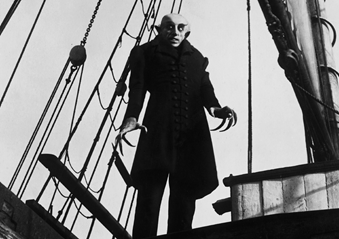
 (Copy).jpg)
 (Copy).jpg)
 (Copy).jpg)
 (Copy).jpg)
 (Copy).jpg)
 (Copy).jpg)
 (Copy).jpg)
 (Copy).jpg)
 (Copy).jpg)
 (Copy).jpg)
Laurence A. Rickels at the U.S. embassy hosted 4th of July celebration.
20.05. Reading: Laurence A. Rickels & Lance Olsen
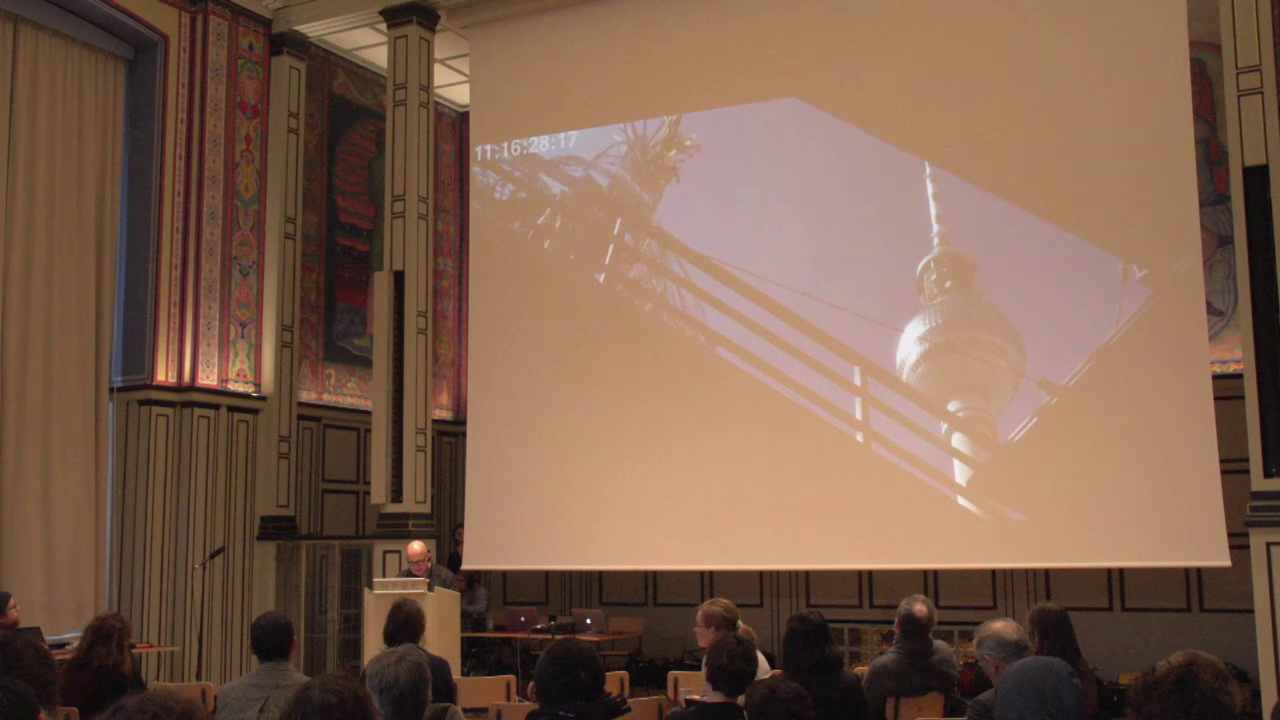
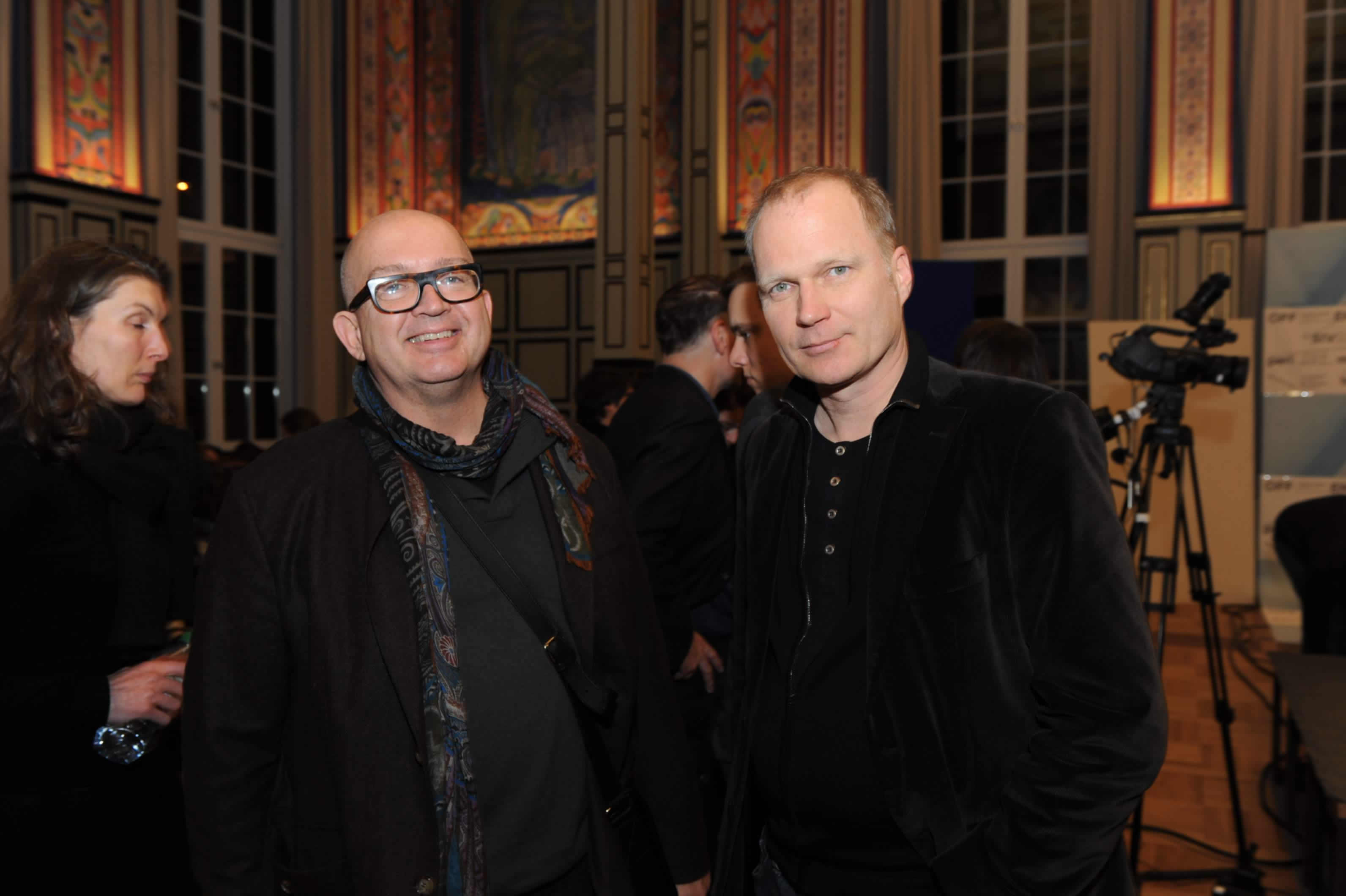
Laurence Rickels with Robert Bramkamp. Photography by E. M. Krebs
